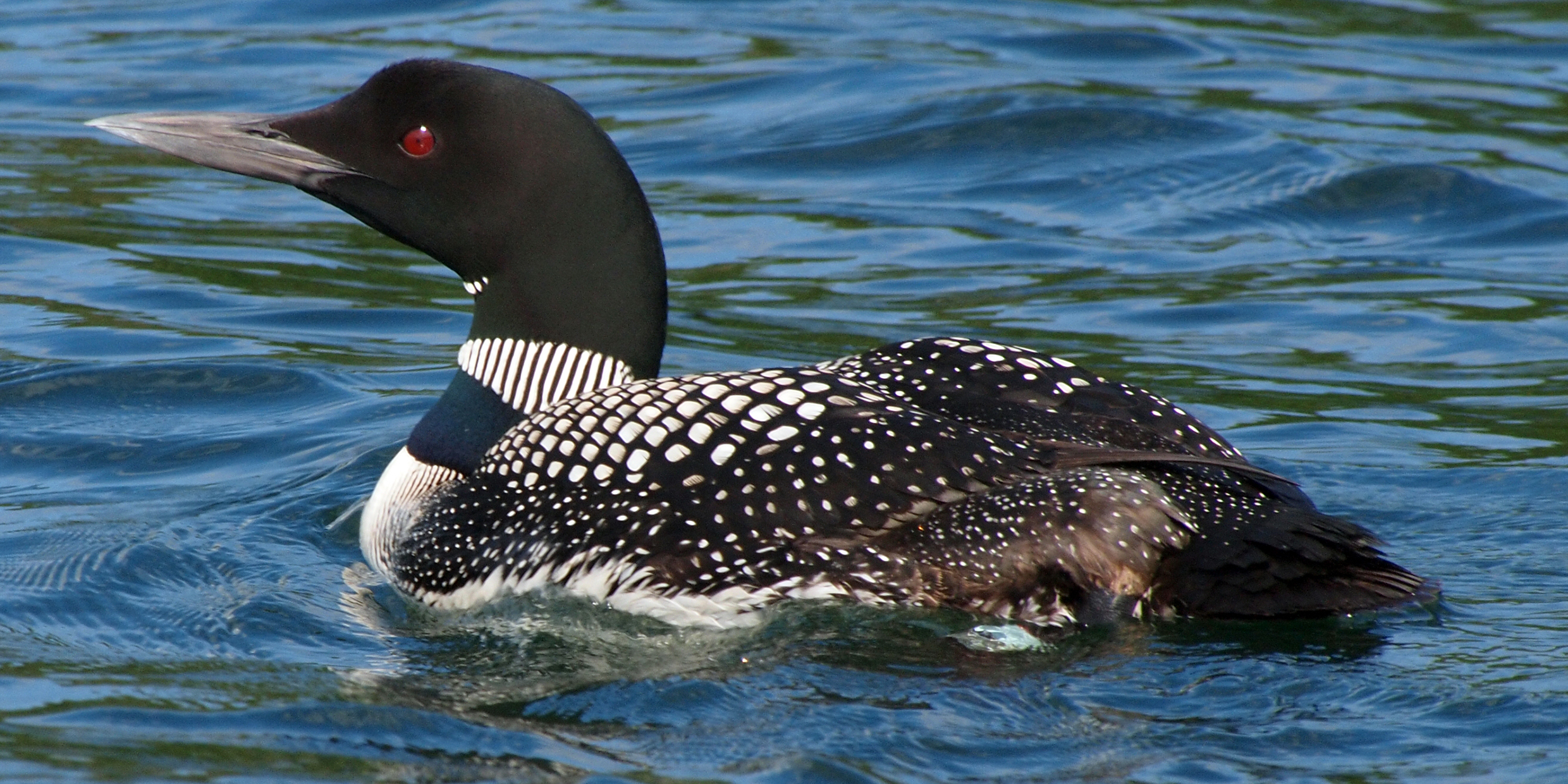Originally published 18 November 1985
In autumn Thoreau listened for the sound of the loon on Walden Pond. He called it “a wild sound, heard afar and suited to the wildest lake.” Another time he heard “a long-drawn unearthly howl, probably more like a wolf than any bird.” We need, said Thoreau, “the tonic of wildness.” The loon’s voice was part of that tonic.
But already the loon was threatened. The mere rumor of a loon on Walden Pond was enough to bring Thoreau’s Concord neighbors flocking from the town, “in gigs, on foot, two by two, three by three, with patent rifles, patches, conical balls, spy-glass or open hole over the barrel.”
Retreat to the north
Loons have never fared well in proximity with humans. With the exception of a few breeding pairs on the Quabbin Reservoir in central Massachusetts, loons have retreated with their wild music to more northerly woodlands. You are unlikely to hear the cry of a loon on Walden Pond today.
Recently, a migrating loon stopped on one of our campus ponds. The visit proved fatal. A student playing soccer on athletic fields near the pond says she heard a “gosh-awful noise.” She looked up in time to see a great bird smash into the bleachers with full force. By the time I saw the bird, it was dead, but even in death, it was wild and beautiful.
The bird had probably just taken off from the pond and was circling to gain speed and altitude. A loon is a powerful swimmer and diver, but it has short wings for a bird of its body weight and its body is not well balanced for life out of the water. A loon cannot take flight from land, and must struggle to lift itself from water. Our visitor was engaged in that struggle when it hit the bleachers. And of course, from the loon’s point of view, the bleachers had no business being there.
In the current [1985] issue of the Massachusetts Audubon Society’s magazine Sanctuary, William Scheller catalogs present threats to the loon’s existence (in addition to bleachers), and efforts that are being made by conservationists to insure that the bird does not vanish completely from New England.
Increasing numbers of summer cottages and motorboats on our ponds and lakes disturb the peace and wildness that loons require to breed successfully. Natural predators are a related problem. Most loon chicks are lost in the egg stage, and the primary culprits are gulls and raccoons. Gulls and raccoons flourish in an untidy human environment.
But even on wild northern lakes the loon is not free of the untidy effects of human activity. Industrial pollution is carried by the wind to the remotest waters of Canada and Maine, where it falls as acid rain. Acid rain leaches metals from the soil. The metals are carried into lakes and ponds and are incorporated into the food chain. Loons are particularly susceptible to poisoning by mercury that is ingested with their food. But the consequence of acid rain can be more direct. Says Scheller: “Acid rain kills fish. Loons eat fish. No fish, no loons…it’s as simple as that.”
Good housekeeping essential
Good housekeeping by lakeside residents is essential if the loon is to make a comeback. Conservationists have embarked upon a program of public education to tidy up the environment and help the loon find elbow room on New England lakes. Artificial islands have been constructed in some of the larger lakes to provide the bird with a secure ground for nesting.
Most importantly, as an endangered species the loon enjoys the protection of law. The Department of Fisheries and Wildlife expressed a keen interest in the bird that flew into our bleachers. Environmental police officers were quick to visit the campus and collect the dead bird’s carcass.
I felt something hugely sad as the bird was taken away. That one loon’s death was in some way emblematic of the loss of something greater, something wild and free. I remembered something Thoreau said: “In wildness is the preservation of the world.”
In his journal, Thoreau described an encounter with a loon on the waters of Walden Pond. The loon cried out, wrote Thoreau, “as if…calling on the god of loon’s to aid him.” The gentle naturalist of Concord was no threat to the loon. Acid rain and the careless management of our lakes and ponds pose more serious and immediate dangers. If there is a god of loons, he has his hands full today.



